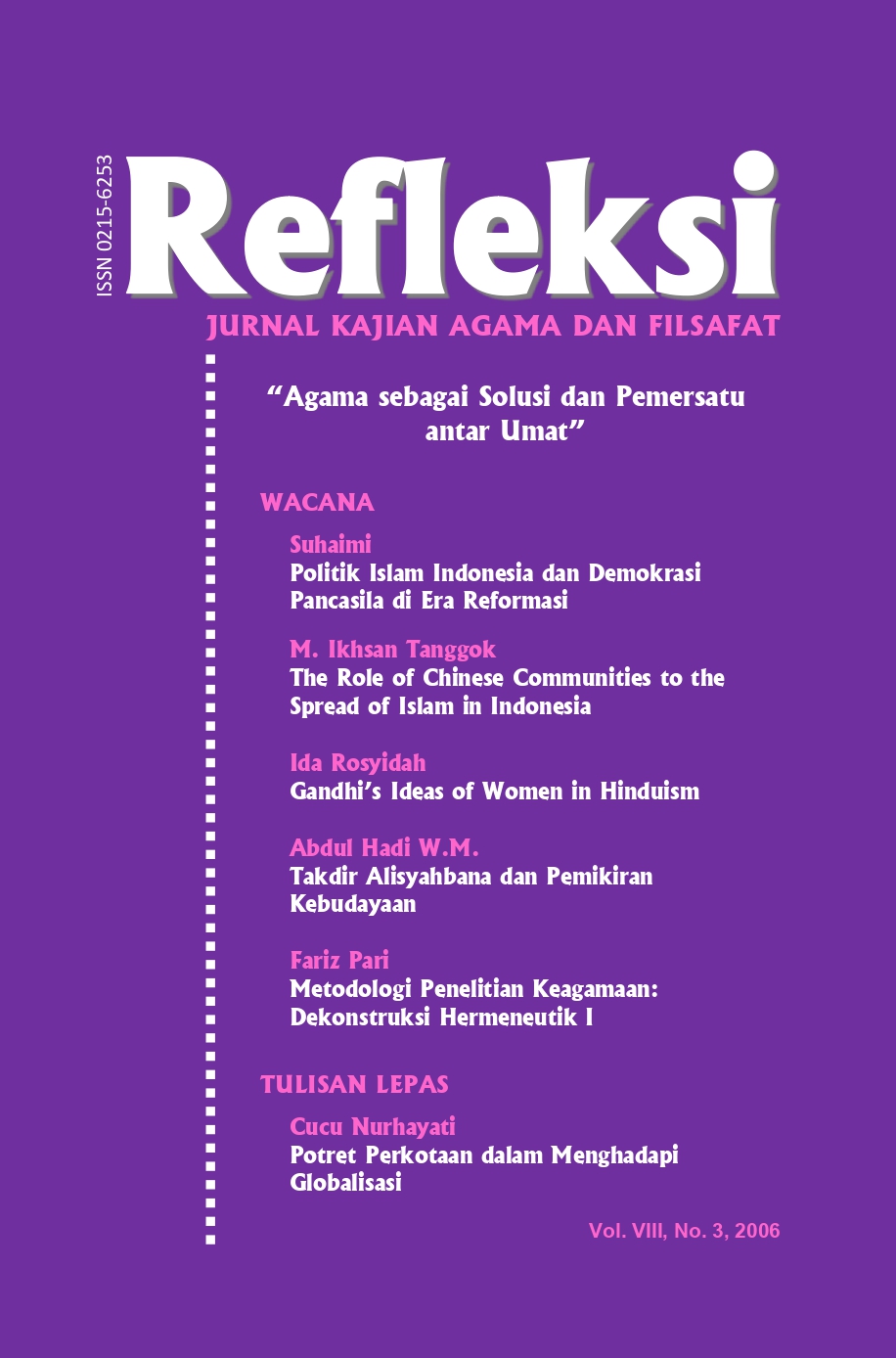Politik Islam Indonesia dan Demokrasi Pancasila di Era Reformasi
DOI:
https://doi.org/10.15408/ref.v8i3.37752Keywords:
Islamic politics, democracy, Pancasila, reform, Indonesia.Abstract
Concerns about the decline of civic culture and the threat of national disintegration have arisen due to the emergence of local and religious sentiments among certain groups with ideologies based on religion in the post-reform era. The author assumes that historically, Pancasila is the result of ijtihad (independent reasoning) by some Muslims together with other groups in society, and the implementation of Islamic Sharia in some regional regulations does not contradict Pancasila democracy. The main issue in this writing is the relationship between Islam and the Pancasila ideology, as well as the implementation of Islamic law.References
Abdullah, Taufik, Islam dan Masyarakat Pantulan Sejarah Indonesia, Ja-karta: LP3ES, Cetakan kedua, Mei, 1997.
Ahmad, Mumtaz (ed), Masalah-Masalah Teori Politik Islam, Bandung: Mizan, Cetakan ke-3, April, 1996.
Anwar, M. Syafii, Pemikiran dan Aksi Islam Indonesia Sebuah Kajian Poli-tik tentang Cendekiawan Muslim Orde Baru, Jakarta, Paramadina, Ce-takan ke-1, Desember, 1995.
Azra, Azyumardi, Dari Harvard Sampai Makkah, Jakarta: Penerbit Re-publika, Cetakan ke-1, Juni, 2005.
Effendy, Bahtiar, Islam dan Negara Transformasi Pemikiran dan Praktik Islam di Indonesia, Jakarta: Paramadina, Cetakan ke-1, Oktober, 1998.
Kuntowijoyo, Identitas Politik Umat Islam, Bandung: Mizan, Cetakan ke-2, 1997.
Sjadzali, Munawir, Islam dan Tatanegara Ajaran, Sejarah dan Pemikiran, Jakarta: UI Pers, Cetakan kelima, 1993.








